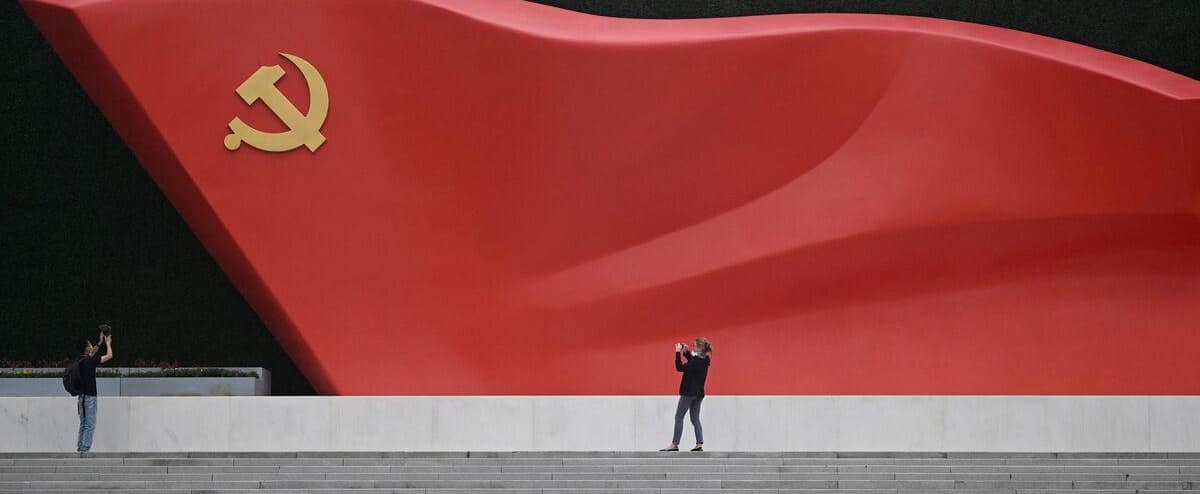Paris, France | Researchers under pressure, growing self-censorship and institutions subject to financial accreditation: The French university and the academic world are subject to multiple interventions, and China is in the lead, according to a parliamentary report published Tuesday.
• Read also: Hypersonic missiles, the new darling of world armies
It is no longer necessary to show global geopolitical tensions, but the work of the Senate fact-finding mission describes how they also affect a traditionally open and free sector, the university and research sector.
The report, chaired by Etienne Blanc, describes the “dominant, but not exclusive, position of China in terms of influence”. Other countries, such as Russia, Turkey and some countries in the Persian Gulf were also affected.
“But no one can boast of the means and scope of the Chinese strategy, which plays at multiple tables and no longer hides its desire to occupy a central position in international relations,” he adds.
Several Western countries have already publicly expressed concern about the strategy of Chinese influence in their universities. “It is important that the countries concerned coordinate”, said the rapporteur, Andrei Gatolin, welcoming in particular the “attention” of the European Commission in this matter.
“Let’s stop the blindness,” he added, denouncing “environmental impact regulations” at the local or regional level that escape the vigilance of the state.
The 240-page Senate document describes “attempts to influence” that “are not limited to matters of economic intelligence, but extend to academic freedom and scientific integrity.”
The task is looking at a dual process. On the other hand, “the shaping of the state’s image or reputation, or the promotion of a formal + narrative, through the exploitation of the human and social sciences.” On the other hand, “breaking in and capturing sensitive scientific data (…) in order to gain a strategic, economic or military advantage.”
“China appears to be the country most capable of implementing a global and systemic impact strategy,” the authors add.
Among its instruments in particular are the Confucius Institutes (IC) located around the world. Like their French, German or Spanish counterparts, they intend to promote Chinese culture. But their scoffers accuse them of being propaganda tools, threatening the academic freedom of their partners, and even harboring spies.
In this regard, the report finds that the “threshold of vigilance” in the French academic world is too high, unsuitable for new threats, and weakened by a general lack of resources.
Security and transparency
In particular, he recommends “raising the issue of foreign interference to a political priority” and regrets that “it is now common to talk about Russian ‘troll farms’ or cyberattacks from Russia and China.”
The authors stress the dilemma facing the university, which is by nature intellectually open, but must henceforth adopt constant vigilance, especially with regard to its foreign students.
The report recommends, among other things, an EU-wide strategy, the performance of an audit on the security of the university’s IT systems, as well as the establishment of a “transparency system on the source of project funding from outside Europe”.
The topic was the subject of a study conducted by the Institute for Strategic Research of the Military School (IRSEM), whose authors were interviewed. “Beijing increasingly assumes it is sneaking and forcing,” they wrote. The party-state now seems to believe, as Machiavelli wrote in his The Prince, ‘that it is safer to fear than to be loved.’
Beijing is literally working, to the point of censoring and intimidating Chinese students, but also teachers and administrators “to modify course content, educational materials or event programming,” IRSEM researchers Paul Sharon and Jean-Baptiste Jangen Filmer have noted.
“The State Party also uses universities to acquire knowledge and technology, through legal (…) or (…) illegal and clandestine means such as theft and espionage.” They insist that in the “context of civil-military integration”, this intervention helps Beijing “to create weapons of mass destruction or develop surveillance technologies.”
See also…

“Extreme twitteraholic. Passionate travel nerd. Hardcore zombie trailblazer. Web fanatic. Evil bacon geek.”


